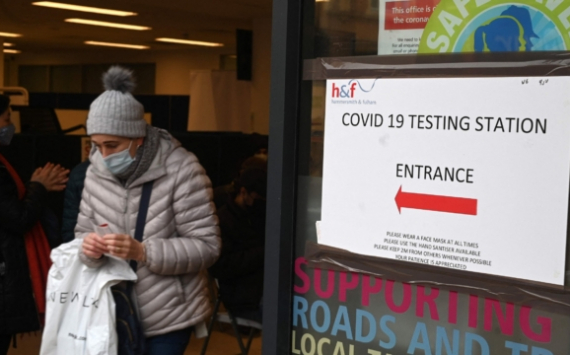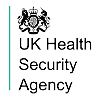
Over half of Omicron cases in England occurred after two doses of vaccine officials have revealed as the first risk assessment of the new Covid variant was published on Friday.
A new technical briefing from the UK Health Security Agency (UKHSA) said 12 of the 22 known cases in England up to 30 November had been fully vaccinated, suggesting Omicron’s potential ability to evade vaccines.
Another two people infected had been given their first dose at least four weeks earlier. Six were unvaccinated, with no data available on two of the cases.
The ages of those who tested positive have not been confirmed yet.
The UKHSA has given its highest “red” alert against the virus for its theoretical ability, based on its mutations, to evade both vaccine and naturally-acquired immunity. It also warned that it could reduce the effectiveness of monoclonal antibody treatment, two of which have now been approved in the UK.
However, officials said their confidence about the red ratings was low due to the very small number of Omicron cases analysed. The Delta and Beta variants have also previously been given red alerts for some of their risk indicators in previous briefings.
The Scientific Advisory Group for Emergencies (SAGE), also said Omicron may be more transmissible through the air.
Minutes from its latest meeting say the new variant “might show more airborne transmission” although the group admitted its “preliminary indications” are made with “low confidence”.
It comes as Omicron cases in Scotland jumped by 16 in the past 24 hours to 29, with a Steps concert among the sources, and the first case of the variant was confirmed in Wales.
In an update on Friday night, the UKHSA said a further 75 cases of the Omicron variant had been identified in England, bringing the total number of confirmed cases to 104.
Scientists in South Africa also believe Omicron is much more able to evade immunity from prior infection than other strains.
Put simply, if you have already had Covid and are unvaccinated, you may not have much protection from Omicron.
In some hopeful news relating to Omicron, a Lancet paper was published on Friday which showed booster vaccines may still offer good protection in the face of the variant.
A team studying the effects of third doses said the body’s T cell immune response after a booster shot is such that it may provide protection from hospital admission and death.
The study also backs up the UK’s decision to offer Pfizer or Moderna as a third shot, with mRNA jabs such as these leading to the most significant rise in immunity levels – hence the UK’s decision this week to order another 114 million more doses from the two firms.
The latest data on vaccination status of hospitalised Covid patients in Gauteng, a populous province that includes Johannesburg and is the centre of the outbreak, shows that only a tiny percentage of the 1,351 of them in the region have been vaccinated.
The one caveat in the data is that the vaccination status of almost 1,000 patients is unknown for some reason but of the 347 patients whose vaccination status is known, 317 have not received their jabs highlighting once again the important of being vaccinated.
That is why there remains concern among UK officials about those who remain unvaccinated, whose lives could be at risk if a huge Omicron wave rips through the population – as it is doing in South Africa.
This would lead to extreme pressure on the NHS at its busiest time of the year and is the reason why some European countries, such as Germany and Austria, have imposed draconian lockdown-style measures on the unvaccinated.
There is also a worry that large numbers of vaccinated people could get a mild illness, but based on the very latest data most scientists are optimistic that we will not see vaccine-escape to the level that there is a significant rise in deaths.






